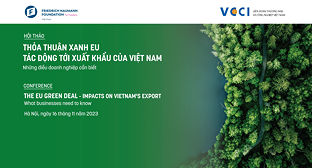The Reform of South Africa’s Anti-Dumping Regime
27/08/2008 12:00
Author: Niel Joubert-Researcher, Trade and Law Centre of Southern Africa
This case study examines the development and reform of South Africa’s anti-dumping regime as an example of a country’s participation in the WTO. The long history of the use of trade remedies by South Africa illustrates the fact that developing countries can successfully participate in the global trading system. By using the WTO’s Anti-dumping Agreement (ADA) as a model for its own antidumping system, South Africa also serves as an example of how a country can make use of WTO instruments to ensure that its domestic legislation is complying with its international obligations.
The first section takes a brief look at the history of the use of trade remedies in South Africa, international developments on anti-dumping rules and the various legislative changes South Africa has undertaken in the past century that have helped shape its current anti-dumping system. It examines the factors that necessitated the reform of the South African anti-dumping regime, and briefly discusses the impact of the change in regional dynamics on the anti-dumping process in South Africa.
Section 2 gives an overview of the government, business and civil society players involved in the process of reforming the South African anti-dumping system. It also briefly touches on the roles of the various parties responsible for the administration of the system in the pre-apartheid and postapartheid periods.
Section 3 identifies the challenges faced by these different players in the process of reforming the existing anti-dumping regime. Special attention is given to the impact of regional developments on the progress of South Africa’s reform. It evaluates the suitability of the new regime that is currently being put into place and the rationale behind the design of the new system to administer anti-dumping duties. Finally, it takes a look at whether the interests and concerns of various stakeholders were adequately addressed in the new system.
Section 4 concludes the study by reflecting on the process South Africa has been through and identifying the experience that can be transferred to other countries. This section argues that proper consultations between government and the various national stakeholders are important for effective policy-making.
This case study examines the development and reform of South Africa’s anti-dumping regime as an example of a country’s participation in the WTO. The long history of the use of trade remedies by South Africa illustrates the fact that developing countries can successfully participate in the global trading system. By using the WTO’s Anti-dumping Agreement (ADA) as a model for its own antidumping system, South Africa also serves as an example of how a country can make use of WTO instruments to ensure that its domestic legislation is complying with its international obligations.
The first section takes a brief look at the history of the use of trade remedies in South Africa, international developments on anti-dumping rules and the various legislative changes South Africa has undertaken in the past century that have helped shape its current anti-dumping system. It examines the factors that necessitated the reform of the South African anti-dumping regime, and briefly discusses the impact of the change in regional dynamics on the anti-dumping process in South Africa.
Section 2 gives an overview of the government, business and civil society players involved in the process of reforming the South African anti-dumping system. It also briefly touches on the roles of the various parties responsible for the administration of the system in the pre-apartheid and postapartheid periods.
Section 3 identifies the challenges faced by these different players in the process of reforming the existing anti-dumping regime. Special attention is given to the impact of regional developments on the progress of South Africa’s reform. It evaluates the suitability of the new regime that is currently being put into place and the rationale behind the design of the new system to administer anti-dumping duties. Finally, it takes a look at whether the interests and concerns of various stakeholders were adequately addressed in the new system.
Section 4 concludes the study by reflecting on the process South Africa has been through and identifying the experience that can be transferred to other countries. This section argues that proper consultations between government and the various national stakeholders are important for effective policy-making.
Các tin khác
- Dispute Settlement DS616: European Union — Countervailing and Anti-Dumping Duties on Stainless Steel Products from Indonesia (24/01/2023)
- Dispute Settlement DS606: European Union — Provisional Anti-Dumping Duty on Mono-Ethylene Glycol from Saudi Arabia (17/08/2021)
- Dispute Settlement DS605: Dominican Republic — Anti-dumping Measures on Corrugated Steel Bars (23/07/2021)
- Dispute Settlement DS603: Australia — Anti-Dumping and Countervailing Duty Measures on Certain Products from China (24/06/2021)
- Dispute Settlement DS602: China — Anti-Dumping and Countervailing Duty Measures on Wine from Australia (22/06/2021)
 Home
Home
 About Us
About Us




















